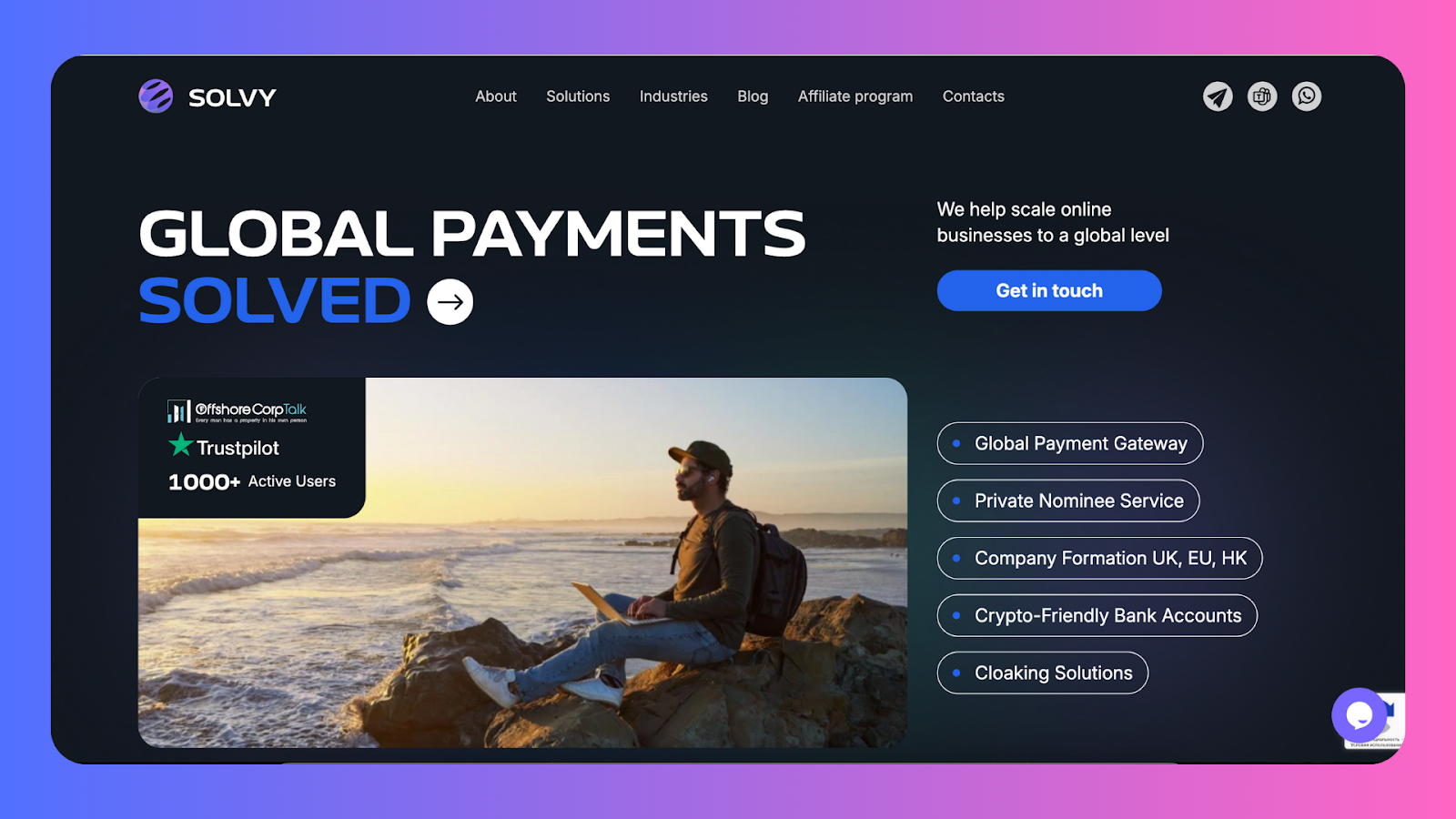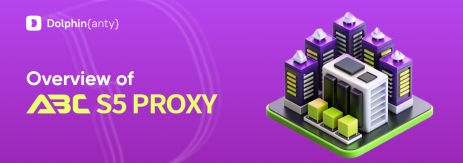The 3 Most Proven Ways High-Risk Industries Can Accept Worldwide Payments in 2025
Blog » The 3 Most Proven Ways High-Risk Industries Can Accept Worldwide Payments in 2025
Running 🚀 a business that doesn’t fit traditional payment processing like Autorize.net can be challenging. These processors often exclude entire regions and business categories, leaving many legitimate businesses without viable payment solutions.
For companies and entrepreneurs from unsupported countries or operating in high-risk industries like adult entertainment, gambling, forex trading, nutraceuticals, CBD, IPTV, replica goods, and iGaming, success requires more than just another traditional payment gateway — it demands access to 🔝 reliable all-in-one payment services, expert guidance, and merchant accounts with strong resistance to restrictions that welcome high-risk merchants and international e-commerce businesses.
In this article, we’ll highlight the 3️⃣ proven ways to accept worldwide payments when you’re in a high-risk industry.
Why Traditional Payment Processors Fail Many Businesses
Before exploring alternatives, let’s understand the limitations of traditional processors:
- Geographic Discrimination: Major processors primarily serve North American and European markets, leaving businesses in Asia, Africa, Latin America, and Eastern Europe with limited options. If your residence isn’t supported by these processors, unfortunately, you cannot build a global business.
- Industry Blacklists: Sectors like adult entertainment, gambling, forex trading, nutraceuticals, CBD, IPTV services, replica goods, and cryptocurrency exchanges face automatic rejections based on higher chargeback rates rather than actual business legitimacy.
- High Volume Requirements: Traditional processors demand substantial monthly transaction volumes (often $50,000+ per month) before offering competitive rates, making them inaccessible for small and medium businesses trying to establish themselves.
- Excessive Fees and Reserves: Beyond standard processing fees, merchants face rolling reserves (10-20% of transactions held for 90-180 days), setup fees, monthly minimums, PCI compliance costs, and chargeback fees that can make operations financially unviable, especially for newer businesses.
- Privacy Concerns: Traditional processors require extensive documentation and reporting, making them unsuitable for businesses requiring discretion or operating in regulatory gray areas.
- Compliance Overhead: Strict KYC requirements and documentation demands create barriers for international businesses and privacy-focused operations.
- Account Instability: Conservative risk management leads to sudden account freezes, fund holds, and unexpected terminations.
Fortunately, ⭐ alternative payment solutions have emerged specifically for businesses that traditional processors reject. Here are three proven ways to accept payments internationally, even in high-risk industries.
Method 1: All-in-One Merchant Payment Solution Providers and Consultants
The easiest way is partnering with companies that provide 💪 complete payment solutions. These companies handle everything — from setting up accounts to ongoing support.
Merchant Provider Services Advantage
Instead of dealing with multiple processors, you get everything in one place: account setup, payment processing, risk protection, and customer support. You will get merchant accounts that are already optimized for accepting payments worldwide with the lowest fees and best conversion rates, helping bypass the typical challenges that come with traditional solutions. This saves time and ensures everything works together smoothly.
Case Study: 📌 SOLVY
All-in-One Merchant Solution Provider
Solvy stands out in creating 🔄 fully operational payment accounts with the ability to withdraw funds to cryptocurrency or any bank account. Their services ensure successful completion of all verification processes and provide prompt support for businesses struggling with traditional payment processors. Unlike single-provider solutions, Solvy offers comprehensive solutions including Private Nominee Services, EMI, Company Formation, and Crypto-friendly Banking (SWIFT, SEPA transfers) while connecting merchants to multiple payment networks.

Moreover, Solvy provides additional services including: Custom website proxy, iFrame integration, Enhanced KYC support and host-to-host integration, Website cloaking solutions, Dedicated account management, Support team, Technical Specialist in group chat, Chargeback alerts service, and Detailed operational guidelines.
Key Advantages 💣
- Fully Operational Payment Account: Access to 160+ payment methods worldwide
- All Countries Supported: Serves businesses in 180+ countries including restricted regions
- Industry Agnostic: Welcomes high-risk sectors often rejected elsewhere
- Privacy-First Approach: No documentation requirements with enhanced discretion
- Risk Diversification: Automatic routing across multiple processors/accounts prevents single points of failure
- Expert Consultation: Dedicated specialists help navigate complex compliance requirements
- 24/7 Multilingual Support
Additional Services ⚙️
- Private Nominee Services
- EMI and Company Formation assistance
- Crypto-friendly banking with SWIFT and SEPA transfers
- Custom website proxy and iFrame integration
- KYC support and compliance guidance
- Payment gate customization (including local methods)
- Host-to-host integration solutions
- Website cloaking and privacy protection
- Dedicated account management and technical support
- Chargeback alerts and detailed operational guidelines
❗ Ideal For: High-risk merchants (replicas, CBD, IPTV, iGaming, forex, nutraceuticals, dropshipping, subscriptions), international businesses from unsupported regions, privacy-conscious operators, startups, subscription model businesses, app developers/publishers, high-volume agencies, and infopreneurs.
💲 Investment: Competitive rates starting from 2.8% + $0.30 per transaction. Setup: Free consultation and custom pricing based on business needs
Method 2: Specialized High-Risk Payment Systems and Aggregators
This approach involves working directly with payment processors and aggregators that specifically cater to high-risk industries. These providers focus on particular geographic regions, industry verticals, or risk categories.
Understanding Specialized Processors
Specialized high-risk processors have built their business models around 🤝 accepting merchants that traditional processors reject. They typically offer higher approval rates for challenging industries but may have limitations in terms of geographic coverage or service comprehensiveness.
List of main high-risk providers:
➜ HighRiskPay (US)
➜ CCBill (US)
➜ PagSmile (Brazil)
➜ EasyPayDirect (US)
➜ Seamlesschex (US)
➜ InstaBill (US)
Advantages of Specialized Processors
- Industry Expertise: Deep understanding of specific high-risk sectors and their unique challenges.
- Higher Approval Rates: Purpose-built systems for accepting businesses that traditional processors reject.
- Competitive Rates: Specialized focus can lead to more competitive pricing for specific industry verticals.
- Regulatory Knowledge: Expertise in navigating industry-specific regulations and compliance requirements.
- Established Relationships: Strong connections with acquiring banks willing to work with high-risk merchants.
Disadvantages of Specialized Processors
- Limited Scope: May only serve specific regions or industries, requiring multiple providers for comprehensive coverage.
- Fewer Features: Often provide basic payment processing without additional services like fraud protection or advanced reporting.
- Higher Risk Concentration: Specializing in high-risk merchants can lead to higher overall portfolio risk and potential instability.
- Limited Support: Smaller operations may not offer the same level of customer support as larger, full-service providers.
- Integration Challenges: May require more technical expertise to integrate with existing business systems.
- Higher Processing Rates: Specialized processors typically charge premium rates due to their niche focus and higher risk tolerance, resulting in increased transaction costs for merchants.
- High Volume Requirements: Often impose strict minimum monthly processing volume thresholds that businesses must maintain to avoid penalties or account closure.
- Strict KYC Procedures: Require extensive documentation and verification, slowing down account setup.
- Rolling Reserve Requirements: Keep a portion of your payments as security for weeks or months, affecting cash flow.
Method 3: Cryptocurrency Payment Processing
The third method leverages cryptocurrency payment processors to bypass traditional banking restrictions entirely. This approach has gained significant traction as digital currencies become more mainstream and regulatory frameworks evolve.
List of main crypto-processing providers for High-Risk businesses (NO KYC required):
➜ Oxapay
➜ NowPayments
➜ Atlos
➜ BitHide
➜ PayGate
➜ Coin Remitter
➜ TX Thinking
Advantages of Crypto Processing
- Regulatory Freedom: Operates outside traditional banking restrictions and industry blacklists.
- Global Accessibility: Available worldwide without geographic restrictions or banking relationship requirements.
- Lower Fees: Typically offers lower transaction costs compared to traditional payment processing.
- Faster Settlements: Near-instantaneous settlement compared to traditional payment processing delays.
- Privacy Protection: Enhanced privacy for both merchants and customers compared to traditional payment methods.
- Innovation Access: Early access to cutting-edge financial technology and payment innovations.
Disadvantages of Crypto Processing
- Limited Adoption: Not all customers are comfortable with or have access to cryptocurrency payments.
- Volatility Risk: Cryptocurrency price fluctuations can affect transaction values and business revenue.
- Technical Complexity: Requires understanding of cryptocurrency technology and wallet management.
- Regulatory Uncertainty: Evolving regulatory landscape creates potential compliance challenges.
- Limited Integration: Fewer integration options with existing business systems and accounting software.
- Customer Education: Requires educating customers on cryptocurrency payment processes.
How to Choose a Suitable Payment Solution Approach 🤔
The optimal payment processing strategy often involves combining multiple methods to create a comprehensive solution that maximizes acceptance rates while minimizing risks. However, it’s important to evaluate carefully and avoid the numerous scammers in this field.
Factors to Consider
📌 Price Evaluation & Red Flags
Be extremely cautious of providers offering unusually low prices, as this field is saturated with scammers who use attractive pricing to lure victims. Legitimate payment processors have operational costs and compliance requirements that prevent them from offering rock-bottom rates.
📌 Geographic Focus
International businesses typically require comprehensive solutions, while regional operations may succeed with specialized providers.
📌 Customer Base
Consider your customers’ payment preferences and technical sophistication when evaluating crypto options.
📌 Risk Tolerance
Higher-risk businesses may need the expertise of all-in-one providers, while established businesses might succeed with specialized solutions.
📌 Growth Plans
Rapid scaling typically requires comprehensive infrastructure, while steady growth may accommodate more specialized approaches.
📌 Experience & Official Reviews
Thoroughly research the provider’s track record through official channels. Look for reviews on verified platforms like Trustpilot, Google Business, or industry-specific review sites. Avoid providers who only have testimonials on their own website.
📌 Official Escrow Services
Always inquire about official escrow services for setup fees. Legitimate providers should offer or recommend established escrow platforms. This protects both parties and demonstrates the provider’s commitment to secure transactions.
Getting Started: Your Next Steps
Immediate Actions:
- Choose and contact one provider from the list for a free consultation and custom solution design
- Research 2-3 additional providers from this list as backup options
- Document your specific requirements including risk factors and geographic needs
- Prepare basic business documentation for faster onboarding
Timeline Expectations:
- Initial consultation: 24-48 hours
- Provider selection: 1-2 weeks
- Integration and testing: 2-4 weeks
- Full deployment: 4-6 weeks
Future Trends in Alternative Payment Processing
- Cryptocurrency Integration: More processors are adding crypto capabilities as digital currencies gain mainstream acceptance.
- AI-Powered Routing: Intelligent transaction routing maximizes approval rates while minimizing costs.
- Privacy Enhancement: Increasing focus on merchant privacy protection without compromising security.
- Regional Specialization: More providers are focusing on underserved geographic regions.
- Regulatory Adaptation: Alternative processors are becoming more sophisticated in navigating complex international regulations.
Conclusion ✅
High-risk businesses no longer need to accept payment processing limitations as insurmountable barriers. The three main approaches outlined — all-in-one solution providers, specialized high-risk processors, and cryptocurrency payment systems — each offer distinct advantages for different business situations.
Whether you choose the 👨💻 comprehensive support of an all-in-one provider like Solvy, the specialized expertise of high-risk focused processors, or the innovative freedom of cryptocurrency solutions, the right payment processing strategy can unlock new markets and drive sustainable business growth.
Don’t let payment processing limitations hold your business back. With careful planning and the right partner, you can unlock new markets, improve customer experience, and provide the stability needed for sustainable growth.










